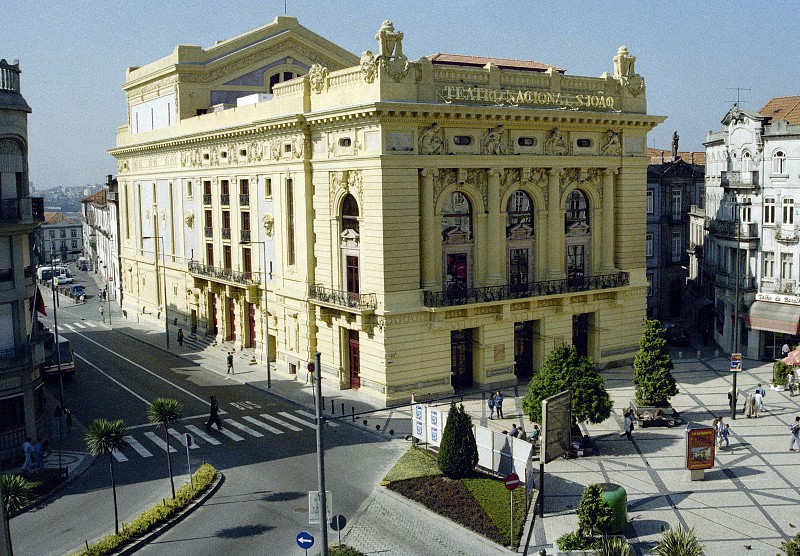The adaptation of “Fado Alexandrino”, by António Lobo Antunes, opens today at the São João National Theater, in Porto, by the hand of director Nuno Cardoso, who considers the work to be the greatest of the last 50 years of Portuguese literature.
In a show dedicated to his father, the artistic director of the Teatro Nacional São João (TNSJ) decided to adapt the book, published in 1983. The protagonists are ex-combatants who, together, share their stories and their reflections on their lives and on Portugal before, during and after the April 25 revolution.
“I thought it was absolutely essential to work on this novel, because it was a previous desire and because I continue to follow my father’s life and because now, at his age, the experience he had of the Colonial War accompanies much of his time, his reflection,” Nuno Cardoso told Lusa after a preliminary rehearsal of the play in February.
The director emphasized that Lobo Antunes’ text has the “extraordinary” characteristic of existing in a “zero theatrical situation”, with people sitting at a table having a meal. “The whole thing is built like an upside-down pyramid. They’re just eating potatoes with cod. They’re only drinking champagne. And they’re only drinking whiskey. It’s fascinating. For a creator, it’s fascinating to try to do this,” he said.
For Nuno Cardoso, the Colonial War remains present today, even if there isn’t – or doesn’t want to be – any discussion about it: “I think it was a red-hot iron and a red-hot iron marks, in a very violent way and forever. All the narrative that exists about April 25, about our democracy, I find it sometimes not very vital, very celebratory. Celebration or praise usually don’t lead to discussion and discussion represents the strength of our beliefs because, if they crystallize, populist discourse can quickly tear them down and we realize that they are no longer beliefs, they are buzzwords that we repeat.”
Because of the importance he attaches to “Fado Alexandrino”, the way the novel addresses one truth – among others – about Portugal over the last 50 years and his family and personal history, Nuno Cardoso decided that this would be the fundamental piece to mark the 25th of April anniversary this year.
The director recognizes that Lobo Antunes’ work “is not a celebratory book”.
“We’ve had 50 years of silence about the Colonial War and the effects it had on the people who were there. These people built our democracy and many of them now feel abandoned. Just as we didn’t face up to the act of aggression that was the Colonial War. Aggression against our sister countries, now brothers, but also against several generations. If we don’t measure the consequences of our actions, what they represented in the lives of these people, we don’t know ourselves. If we don’t know ourselves, we can’t fight for the democracy we created,” he said, stressing that he was “amazed and delighted” by today’s Portugal, which is so different from the one that emerged from the dictatorship – for the better.
“This book is not gentle. The scenes in Mozambique don’t hide anything. So how can we talk about Portugal without this? How can we celebrate our democracy without this? Does fado, our fado, always have to be the journey between Zeca [Afonso] and Dulce Pontes? We are the children of these actions and we perpetuate them anyway, so we have to discuss them,” he said.
As well as allowing him to put on a show with a personal component, what worries Nuno Cardoso about creating “Fado Alexandrino” for the theater is that it is unworthy of the work itself.
“Fado Alexandrino”, for people over 16, will be on stage at the TNSJ until April 28, in a co-production with the Centro Cultural de Belém (where it will be on May 3 and 4), the Teatro Aveirense (May 9) and the Theatro Circo (May 24 and 25).
Directed, dramaturged and adapted by Nuno Cardoso, the play also features Fernando Villas-Boas in the adaptation and dramaturgy, with set design by F. Ribeiro and music by Peixe.
Performing are Ana Brandão, António Afonso Parra, Joana Carvalho, Jorge Mota, Lisa Reis, Patrícia Queirós, Paulo Freixinho, Pedro Almendra, Pedro Frias, Telma Cardoso, Sérgio Sá Cunha and Roldy Harrys.
The TNSJ has already made available a pedagogical dossier on the show, inviting secondary and higher education teachers and students to watch the play.

